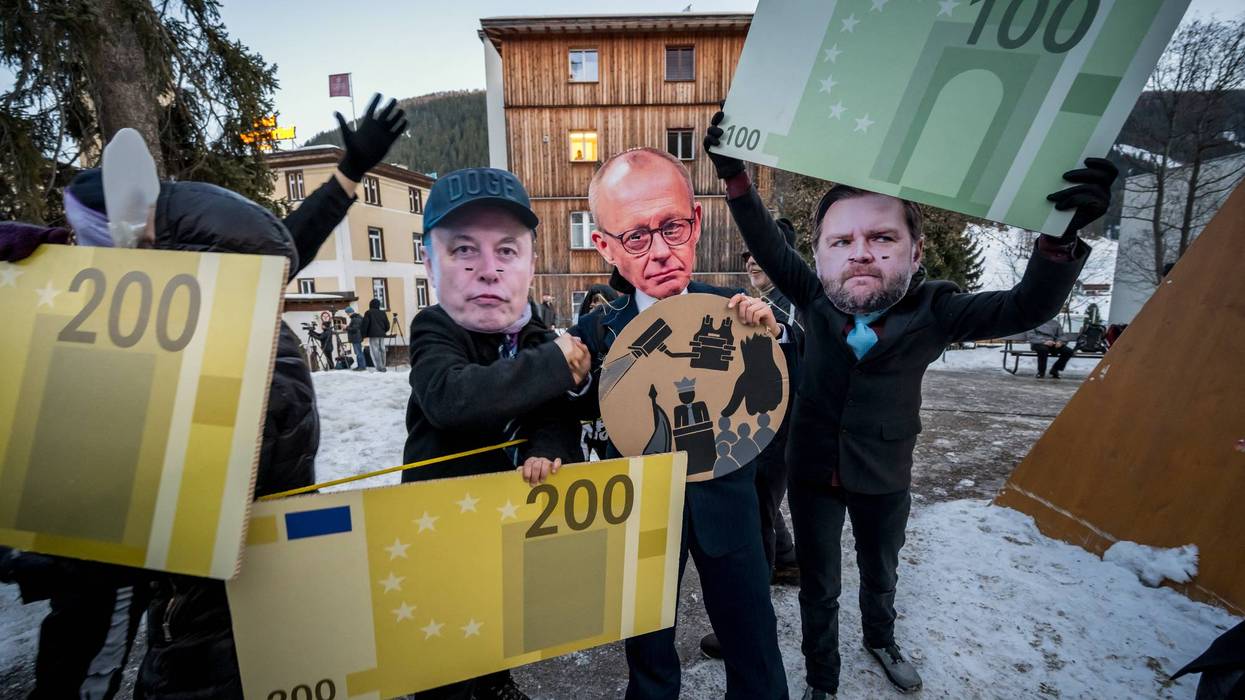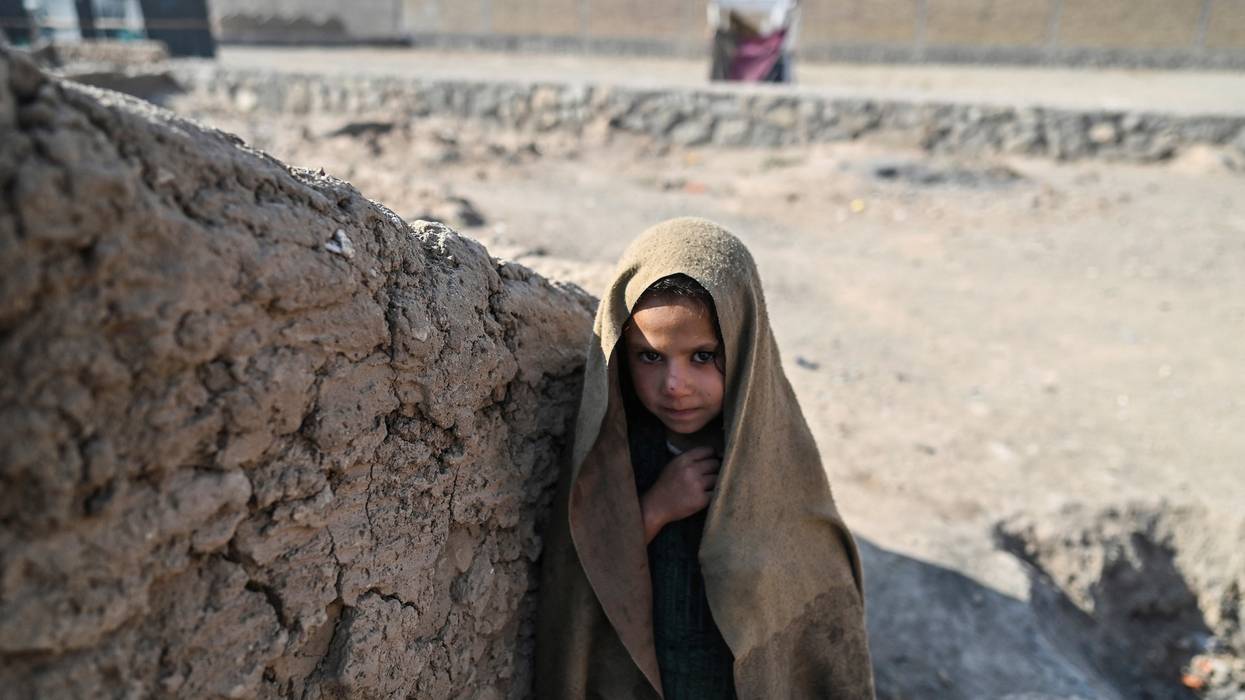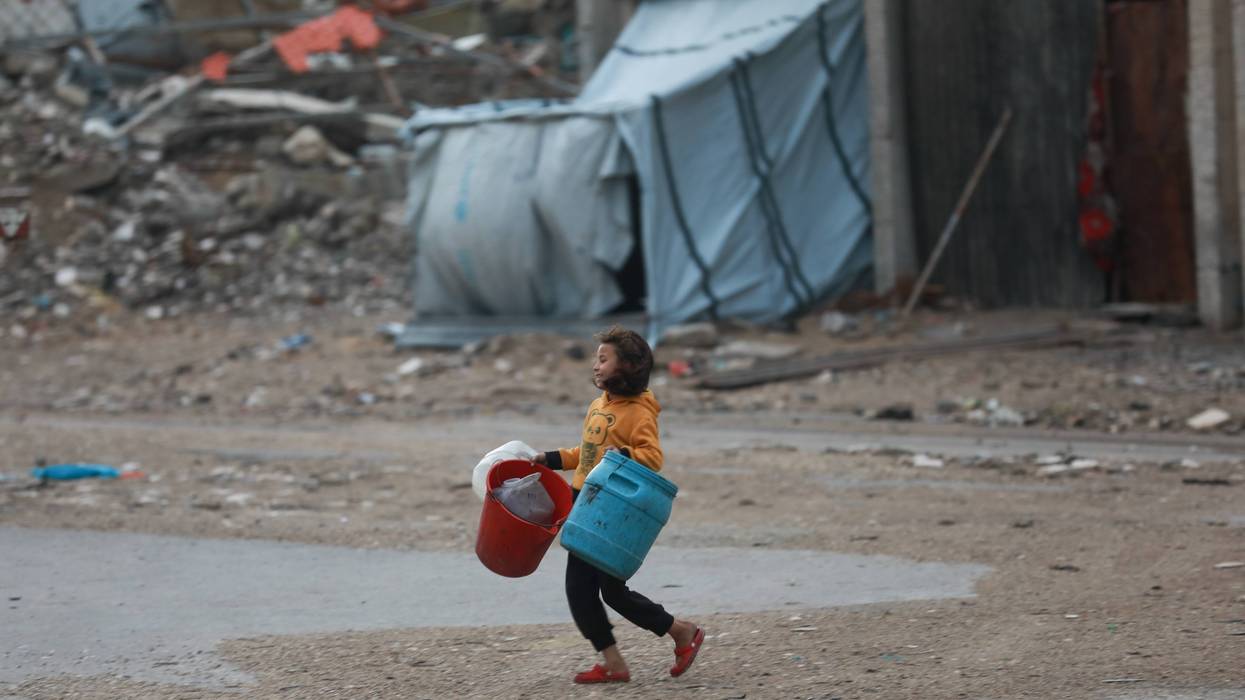Oxfam Warns Record $18.3 Trillion in Billionaire Wealth 'Highly Dangerous' to Democracy
"Governments are making wrong choices to pander to the elite and defend wealth while repressing people’s rights and anger at how so many of their lives are becoming unaffordable and unbearable."
A report released Monday as global elites convened in Davos, Switzerland for the annual World Economic Forum found that the collective wealth of the world's billionaires hit a record $18.3 trillion last year, a marker of supercharged inequality that is threatening democracy across the globe.
Oxfam International's report, Resisting the Rule of the Rich: Protecting Freedom From Billionaire Power, found that the total number of billionaires worldwide surpassed 3,000 for the first time in history in 2025. Billionaire wealth rose by $2.5 trillion, over 16%, last year. That sum, Oxfam observed, would be enough to eradicate extreme poverty 26 times over.
The new report focuses on the dire political consequences of allowing a small fraction of the world's population to capture so much wealth.
As Oxfam put it:
It is one thing for a billionaire to buy an enormous yacht or many luxury homes around the world. This excessive consumption can be rightly criticized in a deeply unequal world where the majority of people have very little and our planet is suffocating from relentless carbon emissions and waste. But many would reject this criticism, describing it as the politics on envy.
Yet far fewer people would disagree that when a billionaire uses their wealth to buy a politician, to influence a government, to own a newspaper or a social media platform, or to out-lawyer any opposition to ensure they are above the law, that these actions undermine progress and fairness. Such power gives billionaires control over all our futures, undermining political freedom and the rights of the rest of us.
Amitabh Behar, Oxfam International's executive director, said Monday that "the widening gap between the rich and the rest is at the same time creating a political deficit that is highly dangerous and unsustainable."
“Governments are making wrong choices to pander to the elite and defend wealth while repressing people’s rights and anger at how so many of their lives are becoming unaffordable and unbearable,” Behar said. “Being economically poor creates hunger. Being politically poor creates anger."
Oxfam's report notes that highly unequal countries are seven times more likely to experience forms of democratic backsliding, such as the erosion of the rule of law and the undermining of elections.
Both are currently taking place under President Donald Trump in the United States, which is home to more billionaires than any other nation.
That includes Tesla CEO and X owner Elon Musk, the world's richest man, who reportedly just dumped a personal record $10 million into the US Senate race on the side of a pro-Trump candidate vying to replace retiring Sen. Mitch McConnell (R-Ky.). Musk was the largest single donor in the 2024 election, deploying his wealth to help propel Trump to the White House for a second term.
“No country can afford to be complacent. The pace that economic and political inequality can hasten the erosion of people’s rights and safety can be frighteningly fast."
Oxfam pointed out that billionaires also use their wealth to influence politics in ways other than bankrolling their preferred candidates. The group observed that "billionaires own more than half the world’s largest media companies and all the main social media companies."
Billionaires are also an estimated 4,000 times more likely to hold political office than ordinary people, the report states.
"The outsized influence that the super-rich have over our politicians, economies, and media has deepened inequality and led us far off track on tackling poverty," said Behar. "Governments should be listening to the needs of the people on things like quality healthcare, action on climate change, and tax fairness."
Oxfam urged governments around the world to pursue a number of reforms aimed at redressing massive inequities in income, wealth, and political power, including "effectively taxing the super-rich," establishing "stronger firewalls between wealth and politics including by tougher regulations against lobbying and campaign financing by the rich," and creating "realistic and time-bound National Inequality Reduction Plans, with well-established benchmarks and regular monitoring of progress."
“No country can afford to be complacent," Behar said. "The pace that economic and political inequality can hasten the erosion of people’s rights and safety can be frighteningly fast."


